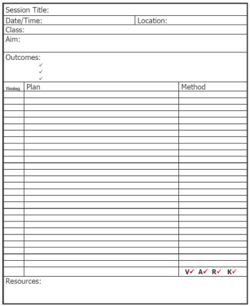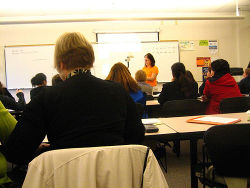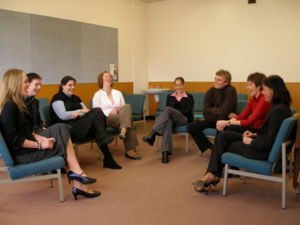Learner Centred Learning/LCL Course Modules
Contents
- 1 Welcome and Introductions
- 2 Overview
- 3 Making a start
- 4 Managing your way through the course work
- 5 Week 1 - What is learner centred learning?
- 6 Week 2 - Reflection and Reflective Practice )
- 7 Week 3 - Learning Sequences
- 8 Week 4 - Learning in Context
- 9 Weeks 5 & 6 - Adult learning theories, principles and practices
Welcome and Introductions
Kia ora and welcome to Learning Centred Learning or LCL for short.I'm Heather Day one of the course facilitators and I hope this course provides you with a deeper insight into teaching and learning that encourages you to think carefully about how you best facilitate the learning of other adults in tertiary environments.
The schedule below is for formal learners in the course. Informal learners are welcome to dip into the resources and play with the information shared in the hope that it adds to your own learning.
Attached is the LCL course outline for formal participants.
Overview
This course encourages you to critically reflect on your teaching practice and offers you the language and theoretical background to say what it is that you believe about teaching/facilitating learning and why you take the approach that you do.
We start by exploring what learner-centred learning means then move to reflective practice considering it's use as a tool to enhance what you do. Following this the focus becomes more specific on planning and where that fits into your practice and then expands again by exploring the contexts within which you facilitate learning and the factors that impact upon you.
The course then introduces a variety of learning/teaching approaches, theories and models to encourage you to explore your own practice in relation to the wider world of education.
Your learning is tied together through the assessment activities encouraging you to share and expand your thinking and critically reflect on both your teaching practice and your teaching beliefs.
Making a start
Now that you have found your way around the WikiEducator course pages (think of these as your study guide or workbook for the course); you also need to find the online classroom space where discussions occur.
- This happens on the course site on Moodle. If you don’t already have a Moodle account it is easy to get one by clicking on the Log in button in the Log in box on the top right of the Moodle opening page.This takes you to full instructions under the heading "Is this your first time here?"
Managing your way through the course work
Don't be overwhelmed
Nibble at this course in bite size chunks.
- The course work is laid out in weekly modules. Information about each week is set out under the weekly headings on this main page.
- There is a a learning module to work through each week. The Key Points summary at the end of each module highlights the core work work for the week but additional resources are often provided for those who want to explore the topic further.
- You will also be directed to the course discussion board to encourage you to share your thoughts and learning with others.
NB Material in the sections below will increase steadily as the course progresses over the next few weeks and material is transferred from a closed source learning system.
Week 1 - What is learner centred learning?
To Do
1. Review the workshop summary and explore the modules on deep and surface learning and learning styles.

2. Formally enrolled users then need to log into the 'Moodle' discussion board and go to the Teaching and Learning Discussions thread. Don't forget to introduce yourself if you haven't already done so on the discussion board.
Links and Resources (at a glance)
This is a repeat of the links and resources used in this weeks module to make it easier to access again later if you wish to.
Approaches to Study “Deep” and “Surface”
Deep and Surface Approaches to Learning
Additional Resources
These are for those of you who may like to explore the topic further
Student-centred learning: What does it mean for students and lecturers? An interesting paper that explores the use of the term student-centred learning (SCL) within the education literature. Links in a wide range of literature.
Learner-Centredness:An Issue of Institutional Policy in the context of Distance Education This paper explores learner-centredness in relation to pedagogy, constructivism, changing roles of teachers and institutional policy.
We will look more at learning styles in weeks 5 & 6 but for those of you interested in a little more about learning styles at this stage, this brief comment on Diverse Learning Styles in Your Classroom has 2 useful links to more information on Kolb’s learning style inventory and Gagne’s types or levels of learning.
Week 2 - Reflection and Reflective Practice )
NB: a two week break is included in this time
To Do
1. Review the LCL Reflective Practice Module.
2. Formally enrolled users then need to log into the 'Moodle' discussion board and go to the Teaching and Learning Discussions thread.
Links and Resources (at a glance)
This is a repeat of the links and resources used in this weeks module to make it easier to access again later if you wish to.
Introduction to Developing Reflective Practice
Additional Resources
These are for those of you who may like to explore the topic further
For those wanting a little more Developing Reflective Practice moves you further through the learning unit from the Higher Education Academy in the UK introduced in the module. Once in this website use the box to the right of your screen to navigate through the learning unit. I'd recommend this site for those who like dipping into resources or are comfortable with more reading as it contains lots of information.
The Getting of Wisdom is recommended for those who are feeling very enthusiastic for more. The link takes you to the first chapter of Stephen Brookfield's book Becoming a Critically Reflective Teacher. Brookfield is a leading name in the literature around reflective practice in teaching.
Week 3 - Learning Sequences
To Do
1. Review the LCL Learning Sequence Module.
2. Formally enrolled users then need to log into the 'Moodle' discussion board and go to the Teaching and Learning Discussions thread.
Links and Resources
(at a glance)
This is a repeat of the links and resources used in this weeks module to make it easier to access again later if you wish to.
Writing learning outcomes: some suggestions
Structured lesson plan template
Teaching Tips for Session Planning
Additional Resources
These are for those of you who may like to explore the topic further
Writing learning outcomes: some suggestions Jude Carroll from Oxford Brookes University offers more detailed tips on writing learning outcomes.
Week 4 - Learning in Context
To Do
1. Review the Learning in context module.
2. Formally enrolled users then need to log into the 'Moodle' discussion board and go to the Teaching and Learning Discussions thread.
Links and Resources
(at a glance)
This is a repeat of the links and resources used in this weeks module to make it easier to access again later if you wish to.
Additional Resources
These are for those of you who may like to explore the topic further
If you can get hold of the book: Zepke, N., Nugent, D., & Leach, L. (Eds.). (2003). Reflection to transformation: A self-help book for teachers. Palmerston North, New Zealand: Dunmore Press; Chapter 10, Making sense of our contexts by Brian Findsen provides a useful exploration of context from a local to a global level.
The Tertiary Education Strategy 2002-07 sets the direction and policy framework for the New Zealand tertiary education system.
The New Zealand Government's Digital Strategy, is another strategy that has a strong influence of the future development of tertiary education exploring the following key areas:
- Content Information we can access that can enrich the quality of our lives.
- Confidence The skills to use ICT and a secure environment in which to do so.
- Connection Getting access to and using ICT.
Weeks 5 & 6 - Adult learning theories, principles and practices
To Do
1. Explore the Adult Learning Theories, Principles and Practices module.
2. Formally enrolled users then need to log into the 'Moodle' discussion board and go to the Teaching and Learning Discussions thread.
Links and Resources
(at a glance)
This is a repeat of the links and resources used in this weeks module to make it easier to access again later if you wish to.
Four Orientations to Learning(pdf document)
Learning Theory by Mark Smith
Additional Resources
There are no additional resources for this module as there is plenty of variety in the module itself encouraging a wide range of individual exploration.






